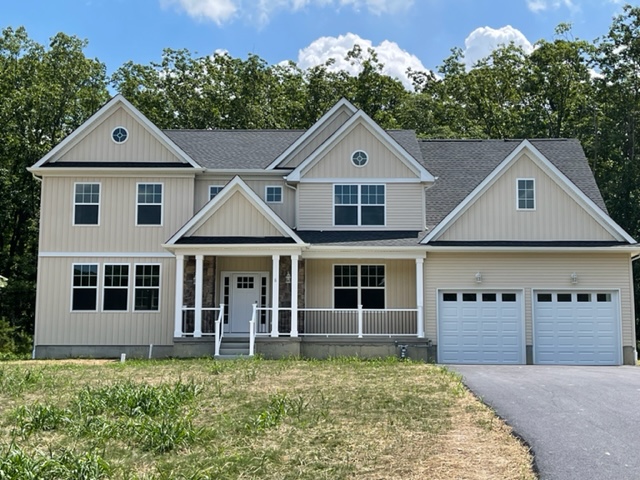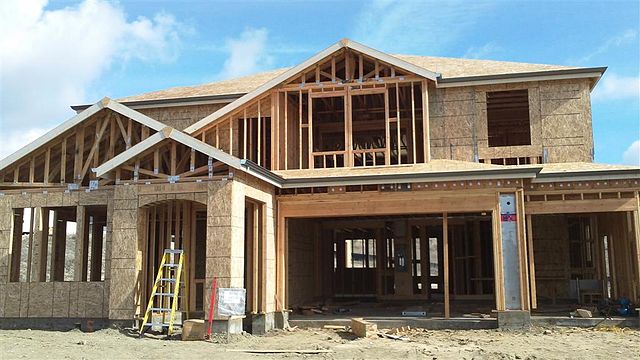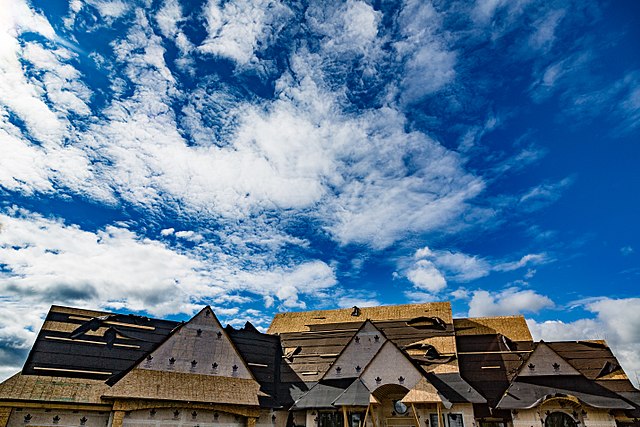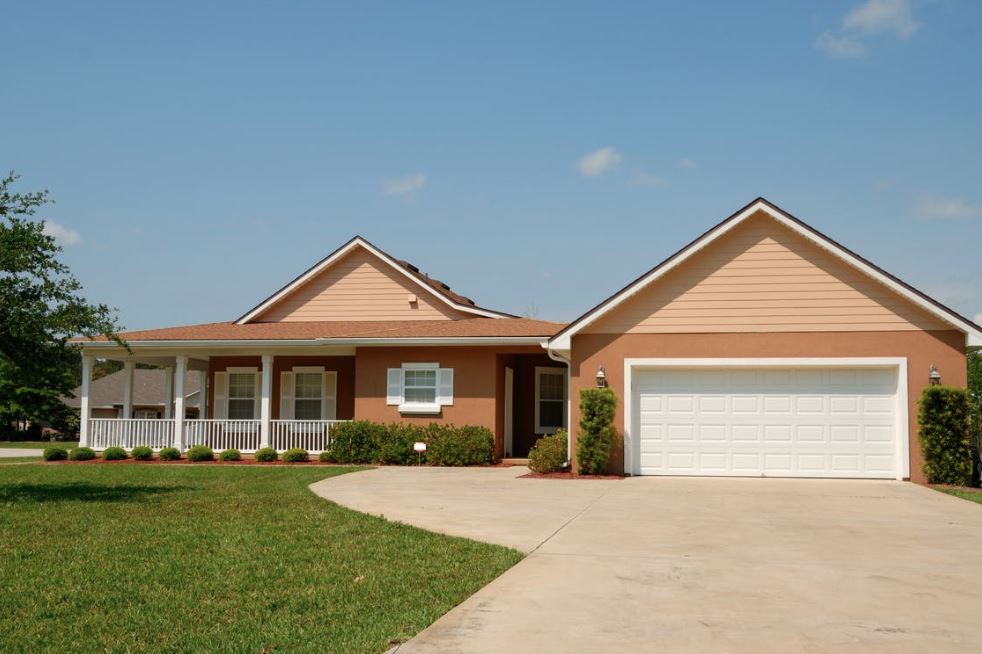
If you are in the market for a new home, you may be wondering what the average time it takes to build a new home might be. The average time to build a home in the United States is about eight months, but there are many things that can delay the process. In this blog post, we will discuss the average time to build single family houses and list some of the top things that can help improve that timeframe. We will also discuss some of the top problems that can delay the construction timeline.
Average Home Construction Project Time By Region
Following is a breakdown of the average build time for a new home by region:
Take a Look At This New Construction Home in Howell, New Jersey! Construction is Complete and It’s Available Now! Contact Us To Schedule a Tour Of This Home.
Northeast
In the Northeast, homes are typically built faster than in other parts of the country. The average build time in the Northeast is about seven months.
Midwest
In the Midwest, homes are usually built at a slightly slower pace. The average build time in the Midwest is about eight months.
South
In the South, homes are often built at a slower pace than in other parts of the country. The average build time in the South is about nine months.
West
In the West, homes are typically built at a faster pace than in other parts of the country. The average build time in the West is about six months.

A Typical Building Process Schedule
The building process for a new construction home can vary greatly depending on the size and complexity of the project. However, there are some general contractor steps that are typically followed in most cases. Once the lot is purchased and the building permit is obtained, the first step is to clear the site and prepare the foundation.
Next, the framing and roofing are completed, followed by the installation of windows and doors. The exterior finishes are then applied, and the interior finishing work is done. Finally, the landscaping and paving are completed and the home is ready for move-in.
Generally speaking, this is just an overview of the actual construction process, and actual schedules can vary depending on a number of factors. All of this information will determine the average completion time.
Preparation And Groundbreaking
The first step to build a house is the preparation and groundbreaking stage, sometimes referred to as site work. This stage can take anywhere from a few weeks to a few months, depending on the size and complexity of the project.
How to Choose a House Plan When Building a New Home?
Foundation
After the excavation is complete, the next step is to pour the foundation. The foundation is what will support the entire weight of the house, so it needs to be strong and level. This process can take a few days to a few weeks, depending on the size and complexity of the project.
Things To Consider
There are a few things to consider during this stage of construction:
The weather: If you’re building in an area with extreme weather conditions (hot or cold), you’ll need to factor that into your timeline.
The ground: If you’re building on rocky or unstable ground, you’ll need to factor that into your timeline as well. You may need to do some extra work to prepare the site for construction.
Obtaining Permits: You’ll need to make sure you have all the necessary permits before you start construction. This can take a few weeks to a few months, depending on your location and the type of project. In addition, you will need to ensure that the final inspection is scheduled with the building code official.
How to Build a House in another State
Framing
Framing is the process of putting up the wooden framework of a new house. This is typically done by a contractor and takes, on average, four to six weeks to complete. The frame of a house is what everything else will be built upon, so it’s important that it is constructed correctly. Once the framing is completed, the rest of the process can begin.
The framework will create the bones of the home, giving it structure and shape. The walls, floors, and roof will be framed up and covered in a protective barrier known as a house wrap.
If you’re thinking about home building, it’s important to factor in the time it will take to complete each step of construction. By understanding the average time it takes to build a home, you can better plan for your project and avoid any potential delays.

Roofing
This is one of the final steps in the home construction process. Roofing is a critical step in the process, as it provides protection for the home from the elements. There are a few things to keep in mind when roofing:
Type
The type of roof you choose will impact the time it takes to complete roofing. Asphalt shingles are the most common type of roofing material, and they can be installed relatively quickly. Metal roofs and tile roofs take longer to install, as each individual piece must be placed carefully.
Size
The size of your home will also impact the time it takes to complete roofing. A smaller home will have a simpler roof, which can be completed in a shorter amount of time. A larger home will have a more complex roof, which will take longer to install.
Exterior Finishes
The exterior of your home is the first thing people see, so you want to make sure it’s perfect. That’s why exterior finishes are so important. Read about 10 Cool Things To Include When Building A House.
Here are some things you need to know about exterior finishes:
- Exterior finishes protect your home from the elements and improve its appearance.
- You have a lot of choices when it comes to exterior finishes, including siding, brick, stone, and stucco. You will also want to consider the style of exterior doors and windows.
- It takes an average of four weeks to complete exterior finishes on a new home.
So if you’re planning on building a new home, make sure you factor in time for exterior finishes. And if you have any questions about exterior finishes, our team at MSC Enterprise is here to help!
Interior Finishes
This is often the last step of construction. Interior finishes include installing doors, windows, trim, flooring, light fixtures and painting. This is the most time-consuming and expensive part of the build process. The average time to complete Interior Finishes is 16 weeks.

Driveways And Walkways
The next step in building your dream home is to lay down the driveways and walkways. This is a relatively simple process, but there are a few things you need to keep in mind. First, you need to make sure that the ground is level before you start laying any concrete. If the ground is not level, it will cause problems later on when you try to lay the foundation.
Second, you need to make sure that the driveway and walkway are wide enough for cars and pedestrians. If they are too narrow, it will create traffic jams and accidents. Finally, you need to make sure that the driveway and walkway are long enough so that people do not have to park their cars on the street.
Landscaping
Let’s not forget about curb appeal. It is when you add the finishing touches to the outdoor of your home. You will want to make sure that you have a plan for your landscaping. You will also want to make sure that you take your time with this process. You do not want to rush through it and end up with a mess.
When you are ready to start your landscaping, you will first need to decide what type of plants you would like to use. You will also need to decide how you would like them arranged. Once you have a plan, you can then start planting your flowers and shrubs!
Here are some things you should know before closing on a new construction home.
Daily Clean Up
After the construction crew has finished their work for the day, they need to clean up the job site. This includes picking up any tools or materials that were left out, as well as sweeping and/or power washing the area. The cleanup process can take a few hours, depending on the size of the job site.
It’s important to have a clean job site not only for aesthetics but also for safety purposes. Having a clean and organized job site will help to prevent accidents from happening.
Factors That Often Delay Construction
Weather
If the weather is bad, it can put a halt to the process. This is because workers can’t safely do their job in inclement weather conditions.
Permits
If the necessary permits haven’t been obtained, then construction can’t legally start. The permit process can take a few weeks (or even longer), so this is a common delay factor.
Materials
If the materials needed for the job aren’t available, then construction will be delayed until they arrive. This isn’t always within the contractor’s control, but it’s something that needs to be considered nonetheless.
Change Orders
A change order is when the owner of the project requests a change to the scope of work. This could be something as small as moving a light fixture or adding an extra window. Change orders can lengthen the process because they need to be approved and then incorporated into the project plan.
As you can see, there are a few factors that can delay construction. However, if you’re prepared for them, then you can avoid any major delays in your project.
If you have any questions about the process, feel free to contact us.
Tips to Avoid Construction Delays
Communicate with your contractor
One of the best ways to avoid construction delays is to have a good relationship with your contractor. Make sure you are clear about what you want and that they understand your vision. Be available to answer any questions they may have.
Have a realistic timeline:
Don’t try to rush the process by setting unrealistic deadlines. This will only lead to frustration on both ends. Give yourself some wiggle room in case there are unforeseen delays.
Be prepared for weather delays:
Depending on the time of year, weather can be a major factor in construction delays. If possible, try to schedule your project during the warmer months when there is less chance of rain or snow days halting progress.
Be flexible:
Things will inevitably come up that are out of your control. Try to be as flexible as possible and go with the flow. The sooner you can adjust to changes, the sooner construction can get back on track.
Have a backup plan:
If there is something you’re really set on, have a backup plan in case it doesn’t work out. This way, you won’t be left scrambling at the last minute trying to find a new solution.
With some careful planning and communication, you can avoid most construction delays. By being prepared for the unexpected and having a backup plan, you’ll be able to keep your project on track even if there are some hiccups along the way.
Building a home is a big undertaking, but it can be a very rewarding experience. By following these tips, you can avoid many of the common delays that occur during construction.
Take a look at these 10 cool things to include in your new home build.
If you have any questions or need help getting started building your new home, contact us. We’re here to help you every step of the way!
FAQ
How long does the average home take to build?
The average time to build a dream home is between four and six months. However, this can vary depending on a number of factors, such as weather delays, permits, material availability, and change orders.
What are some tips to avoid construction delays?
Some tips to avoid construction delays include communicating with your contractor, having a realistic timeline, being prepared for weather delays, being flexible, and having a backup plan.
What is a “built for sale” home?
A built for sale home is a newly constructed home that is built with the intention of being sold. These homes are usually built by developers or builders and are not custom-built for a specific buyer.

